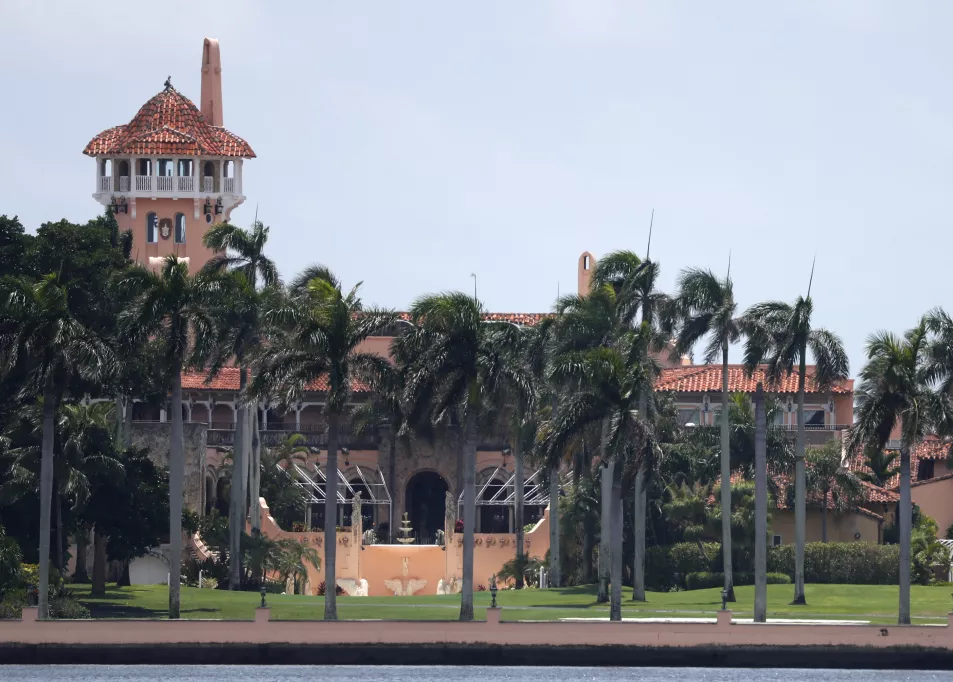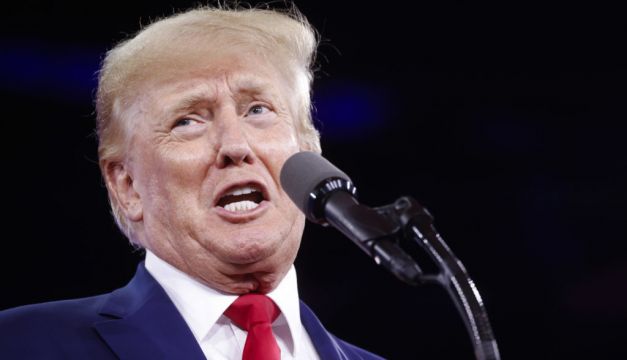Former US president Donald Trump said in a lengthy statement on Monday that the FBI was conducting a search of his Mar-a-Lago estate.
A person familiar with the matter told the Associated Press the action was related to a probe of whether Mr Trump had taken classified records from his White House tenure to his Florida residence.
The action, which the FBI and Justice Department did not immediately confirm, marks a dramatic escalation in law enforcement scrutiny of the former president and comes as he has been laying the groundwork to make another bid for the White House.
Though a search warrant does not suggest that criminal charges are near or even expected, federal officials looking to obtain one must demonstrate that they have probable cause that a crime occurred.
“After working and co-operating with the relevant government agencies, this unannounced raid on my home was not necessary or appropriate,” Mr Trump said in his statement, claiming agents broke into a safe during the search.

He added: “These are dark times for our Nation, as my beautiful home, Mar-A-Lago in Palm Beach, Florida, is currently under siege, raided, and occupied by a large group of FBI agents. Nothing like this has ever happened to a President of the United States before.”
Justice Department spokesperson Dena Iverson declined to comment on the search, including about whether Attorney General Merrick Garland had personally authorised it.
A person familiar with the matter, who spoke on condition of anonymity to discuss an ongoing investigation, said the search happened earlier on Monday and agents were also looking to see if Mr Trump had additional presidential records or any classified documents at the estate.

The Justice Department has been investigating the presence of classified records inside 15 boxes that were retrieved from Mar-a-Lago by the National Archives and Records Administration earlier this year. The archives then referred the matter to the Justice Department.
US federal law bars the removal of classified documents to unauthorised locations, though it is possible that Mr Trump could try to argue that, as president, he was the ultimate declassification authority.
There are multiple statutes governing classified information, including a law punishable by up to five years in prison that makes it a crime to remove such records and retain them at an unauthorised location. Another statute makes it a crime to mishandle classified records either intentionally or in a grossly negligent manner.

The probe is hardly the only legal headache confronting Mr Trump. A separate investigation related to efforts by Mr Trump and his allies to undo the results of the 2020 presidential election and the January 6 2021 riot at the US Capitol has also been intensifying in Washington.
And a district attorney in Fulton County, Georgia, is investigating whether Mr Trump and his close associates sought to interfere in that state’s election, which was won by Democrat Joe Biden.







